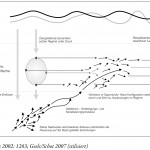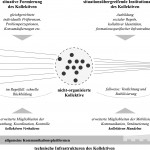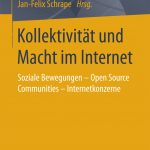16. August 2016
Der in den Social Movement Studies erschienene Artikel »Masses, Crowds, Communities, Movements: Collective Action in the Internet Age« von Ulrich Dolata und mir ist nun bis Ende des Jahres kostenfrei bei Taylor & Francis abrufbar.
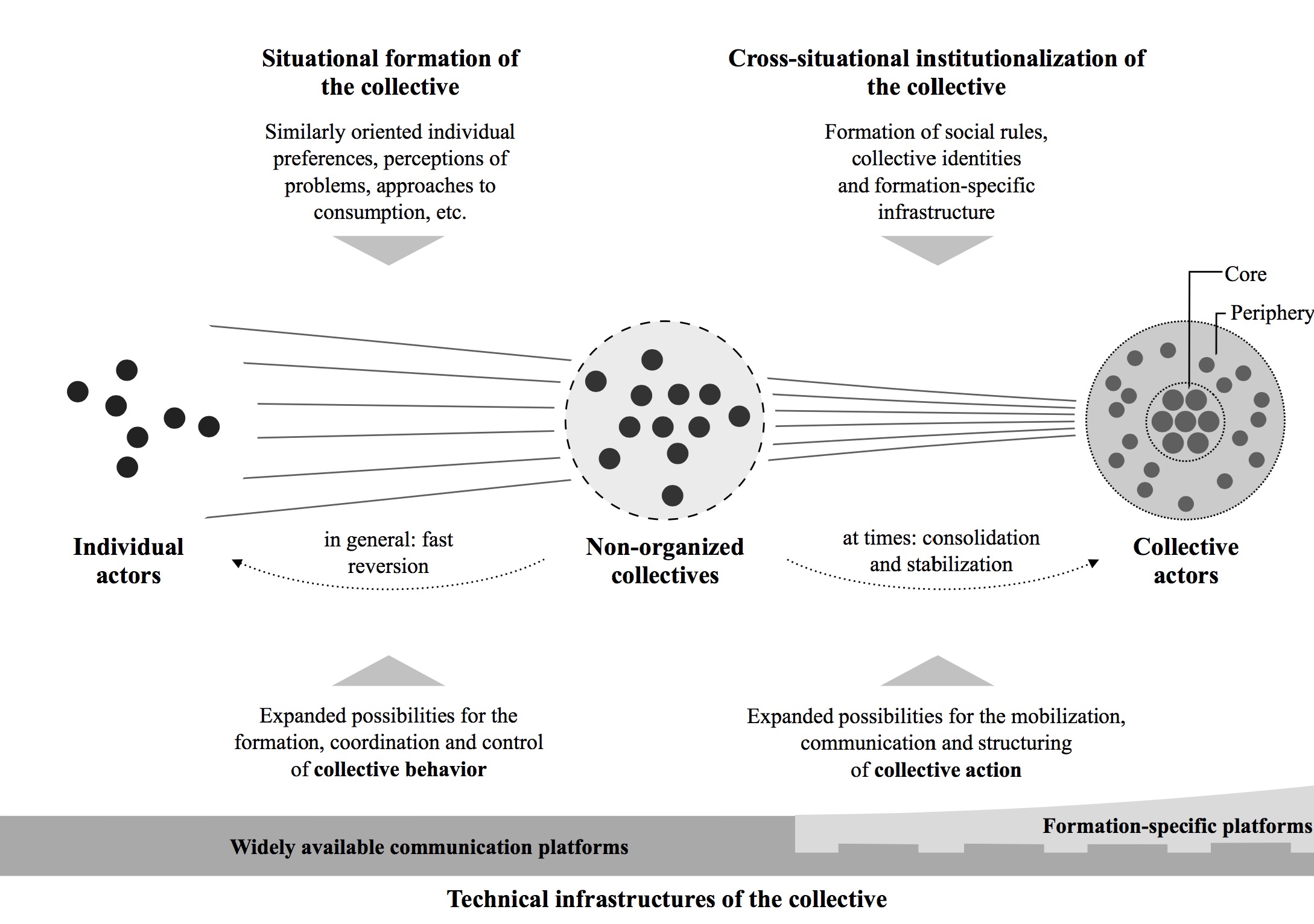
zum Artikel »
7. August 2016
Aus dem Studienbrief »Kommunikation und Partizipation im Social Web. Eine Übersicht« (2015). Zum Aspekt der Datenkompetenz der digitalen Gesellschaft vgl. »Mobile Medienkonvergenz – infrastrukturelle Macht – Daten- und Informationskompetenz«.
Der Begriff der Medienkompetenz genießt seit einem Vierteljahrhundert in vielen sozialwissenschaftlichen Disziplinen Popularität, da der ›richtige‹ Umgang mit Medien angesichts ihrer zunehmenden Zentralstellung in Alltag und Beruf als die »zentrale Schlüsselqualifikation in der modernen Gesellschaft« (Jarren/Wassmer 2009: 46) angesehen wird. Dementsprechend haben sich v.a. in der Erziehungswissenschaft, Kommunikationswissenschaft und Psychologie eine Vielzahl nebeneinanderstehender Definitionen herausgebildet, die jeweils unterschiedliche Aspekte bzw. Dimensionen der Medienkompetenz betonen (siehe Tabelle).
Aufenanger
1997
| Tulodziecki
1997
| Baacke
1998
| Kübler
1999
| Groeben
2002
| Jarren/Wassmer
2009
|
| Kognitive Dimension | Fähigkeit zum sachgerechten Handeln | Medien-
kunde | Kognitive Fähigkeiten | Medienwissen /
-bewusstsein | Reflexive Medien- kompetenz |
| Handlungs-dimension | ... zum selbst-bestimmten Handeln | Medien-
nutzung | Handlungs-fähigkeiten | Rezeptions-
muster | Instrumentelle Medien-kompetenz |
| Moralische Dimension | ... zum sozial verantwortlichen Handeln | Medien-
kritik | Evaluative Fähigkeiten | Medien-
bezogene Kritikfähigkeit | |
| Ästhetische Dimension | ... zum kreativen Handeln | Medien-
gestaltung | Sozial-reflexive Fähigkeiten | | Vermittlungs- kompetenz (sozialbezogen) |
| Affektive Dimension | | | | Medienbezogene Genussfähigkeit | |
Weiterlesen »
15. Juni 2016
Der Reuters Institute Digital News Report ist in diesen Tagen erschienen und bietet wie in den Jahren zuvor einen kompakten Überblick zur weltweiten Rezeption von Nachrichtenangeboten und die Nutzung der unterschiedlichen Medienkanäle in der individuellen Versorgung mit tagesaktuellen Informationen.
Die Erhebungsresultate für Deutschland lassen sich als Arbeitspapier des Hans-Bredow-Instituts (Hamburg) in ausführlicher Form abrufen. Einige Kernergebnisse:
Weiterlesen »
9. Juni 2016
Ende Mai ist der Sammelband »The Decentralized and Networked Future of Value Creation« erschienen, in dem sich auch der Artikel »Materializing Digital Futures« findet, den ich zusammen mit Sascha Dickel verfasst habe:
Based on two paradigmatic case studies—Web 2.0 and 3D printing—this chapter explores the semantic patterns of popular media utopias and unfolds the thesis that their continuing success is based on their multireferencial compatibility to a broad variety of sociocultural and socioeconomical discurses. Further, we discuss the ambivalences and social functions of utopian concepts in the digital realm.

Weiterlesen »
12. April 2016
Inzwischen ist der Studienbrief »Kommunikation und Partizipation im Social Web. Eine Übersicht«, den ich im Jahr 2014 für die Fernuniversität in Hagen verfasst habe, als Autorenversion auch als kostenloser Download verfügbar:
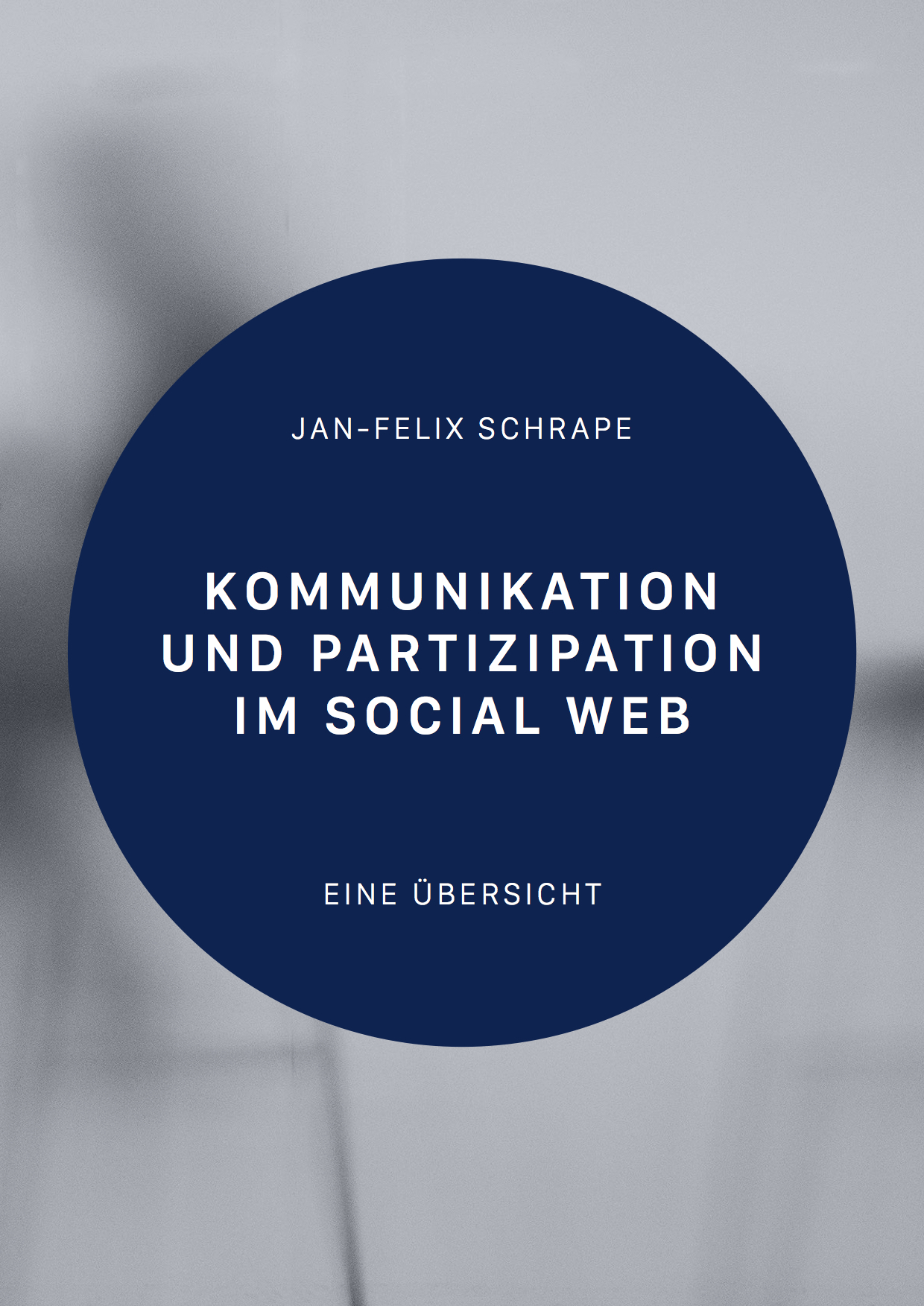
»Das Internet hat als erstes ›Universalmedium der Menschheitsgeschichte‹ (Holland 1997) bereits in den 1990er Jahren eine breite sozialwissenschaftliche Debatte zu seinen soziokulturellen wie -ökonomischen Rückwirkungen angestoßen und das sogenannte ›Web 2.0‹ hat entsprechende Diskussionen ab 2005 weiter befördert.
Mit Blick auf die damit verbundenen, teilweise sehr weitreichenden Zukunftsvorstellungen die Übersicht zu behalten sowie zwischen tatsächlich gegebenen Trends und hochfliegenden Prophetien zu unterscheiden, erscheint allerdings nicht immer einfach […].
Eine kleine Navigationshilfe zur weiteren Beschäftigung mit dem gesellschaftlichen Wandel, der durch die Onlinetechnologien angestoßen worden ist, bietet dieser Studienbrief, der seinen Schwerpunkt auf die langfristigen Transformationsdynamiken legt, die aus den neuen Kommunikationsweisen im Netz resultieren. Der Band will einen kontextorientierten Überblick zum Social Web als soziotechnisches Phänomen vermitteln, das durch das Ineinanderwirken vielfältiger gesellschaftlicher sowie technologischer Einflussfaktoren geprägt ist, und führt Schritt für Schritt in die damit verbundenen Diskurszusammenhänge ein. […]«
25. März 2016
Im kommenden Sommersemster führt die Stuttgarter Organisations- und Innovationssoziologie eine Veranstaltungsreihe zum Thema »Kollektivität – Öffentlichkeit – Internet« durch. Mit dabei sind diesmal Sebastian Haunss (Bremen), Marc Mölders (Bielefeld), Simon Teune (Berlin) und Christian Papsdorf (Chemnitz).
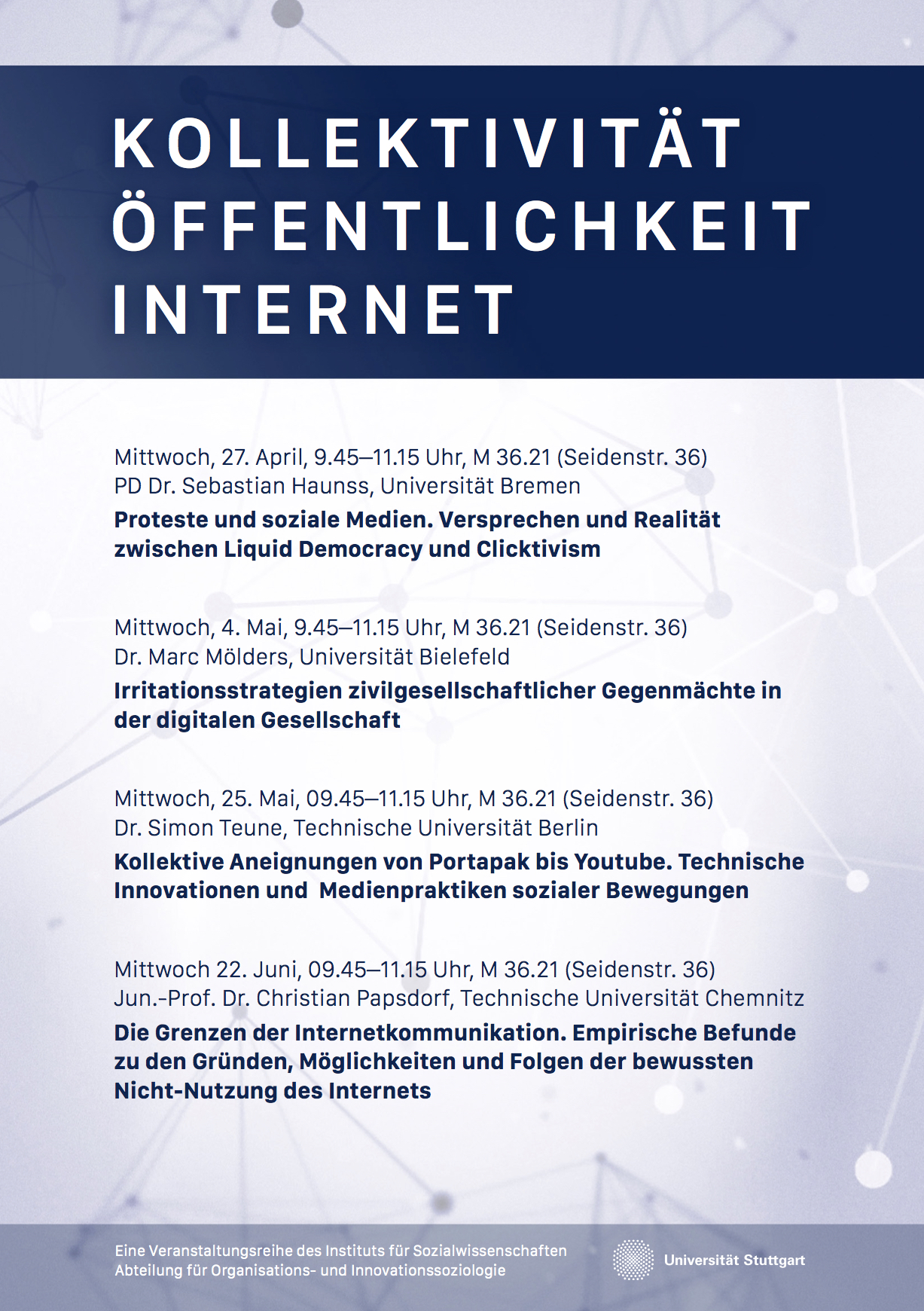
12. März 2016
Dem derzeitigen ›4.0‹-Trend folgend hat Dirk Baecker unlängst in seinem lesens- wie diskussionswerten Essay »Oszillation 4.0« (auf dem jungen sozialwissenschaftlichen Nachrichtenportal Soziopolis) die Mediengeschichte neu aufgerollt und – wie der Titel schon sagt – entlang des Begriffs der ›Oszillation‹ in 4 Phasen gegliedert:
 Weiterlesen »
Weiterlesen »






